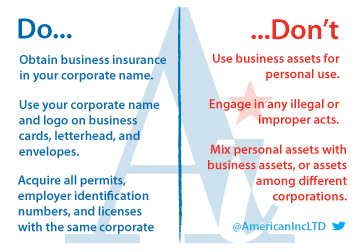When deciding on an entity type for your business, you should review how taxes will be handled. Not all entity types are taxed the same way. In this post, we’ll highlight how Limited Liability Companies are taxed differently than corporations.
One feature that Limited Liability Companies do not share with Corporations is their tax options. Limited Liability Companies have the option to do partnership taxation. This process is only available to partnerships, S Corporations, and Limited Liability Companies, and may also be known as “pass through taxation.”

LLC Pass Through Taxation can be broken down into the following 3 characteristics…
- Pass through taxation creates a situation where the business entity will not be taxed.
- Income passes through the business entity to its members.
- How the LLC will report their annual income will depend on its number of members.
This pass through taxation option is one of the notable characteristics of Limited Liability Companies. As always, it is best to do your research. When reviewing an entity type and its tax options, we usually recommend consulting an accountant in order to better understand your options and how you can achieve the maximum benefit for your business.
If you'd like more information about Limited Liability Companies and how they can differ from Corporations, you can visit our Entity Comparison Chart. Our free Pass Through Taxation Info Sheet (available below) highlights information about pass through taxation, along with defining the most common characteristics of Limited Liability Companies.

 Call:
Call:  Live Chat
Live Chat




.jpg?width=225&height=300&name=88583312_(1).jpg) The fastest answer is “it depends.” When you’re deciding to incorporate your business, there are many things for you to consider. We’ve compiled these 3 important questions for you to ask yourself when deciding what state is best for incorporating your business.
The fastest answer is “it depends.” When you’re deciding to incorporate your business, there are many things for you to consider. We’ve compiled these 3 important questions for you to ask yourself when deciding what state is best for incorporating your business.





